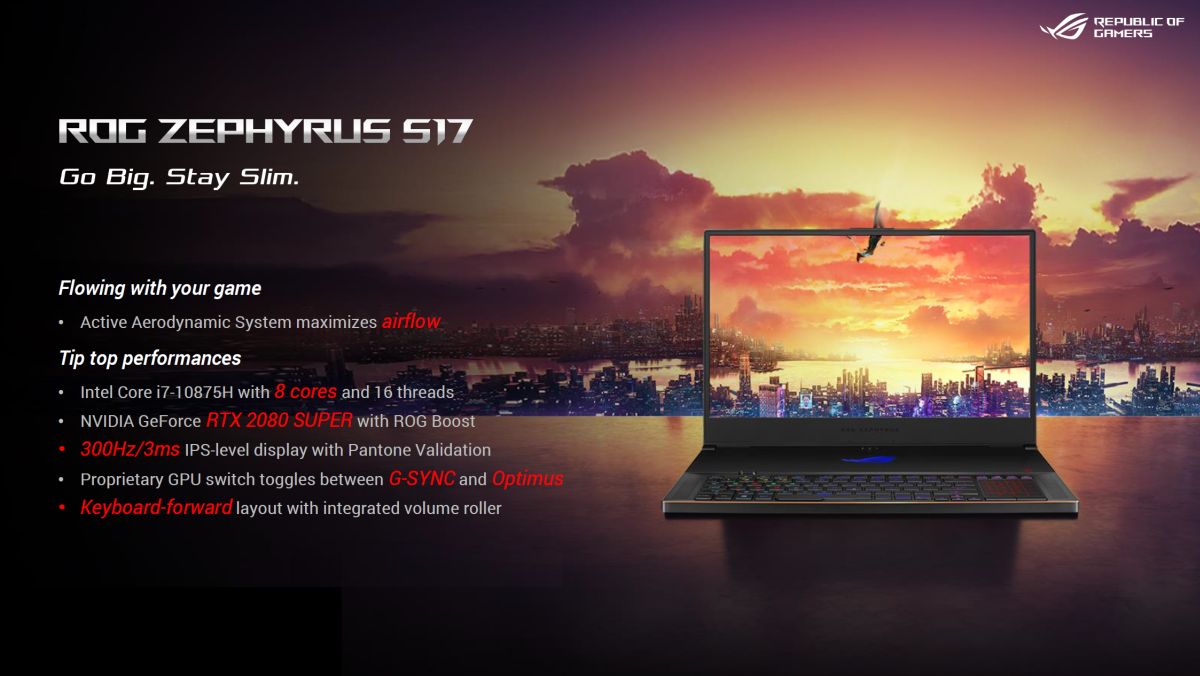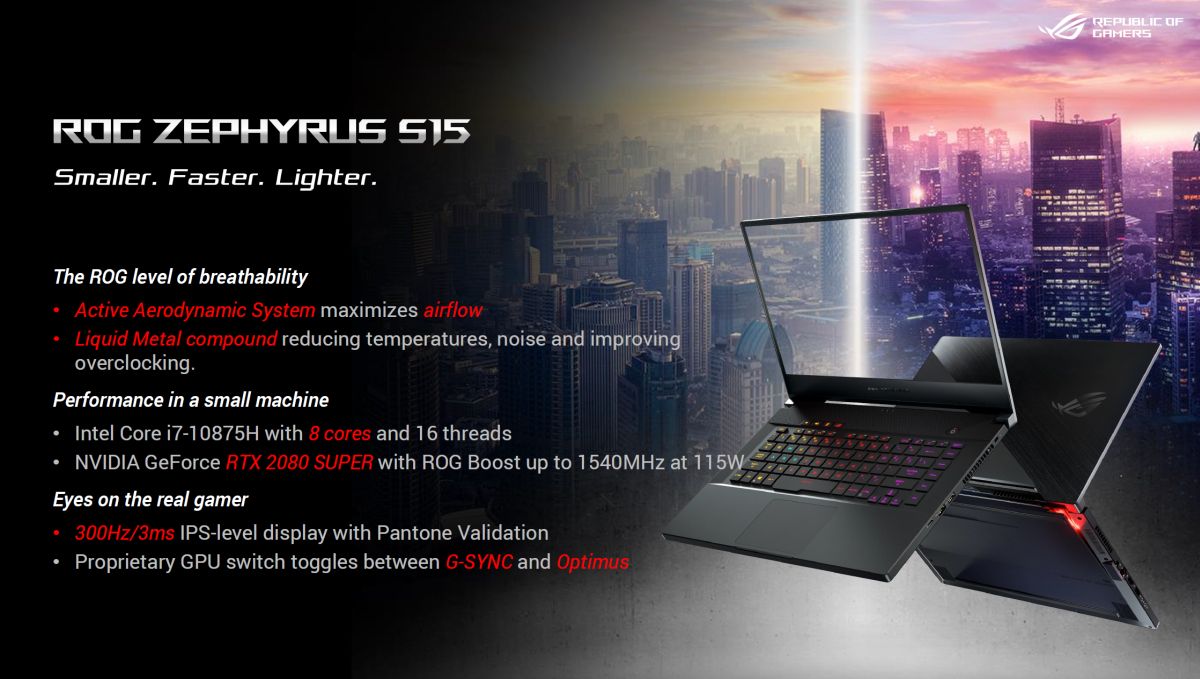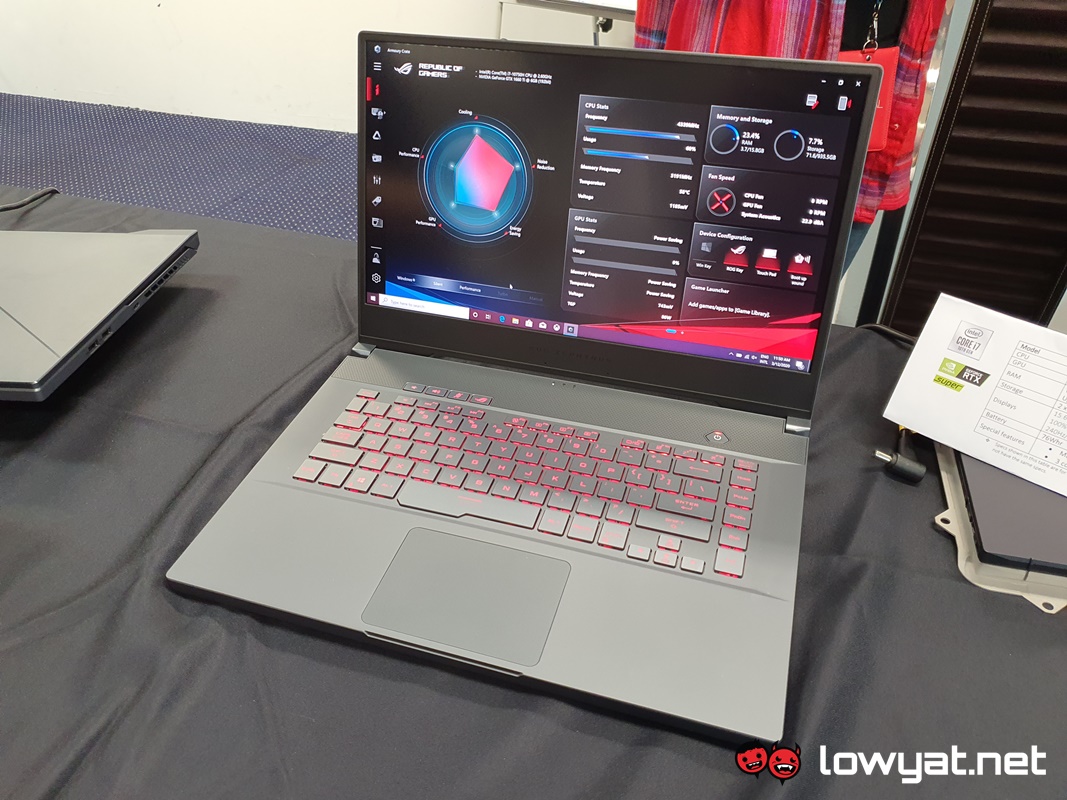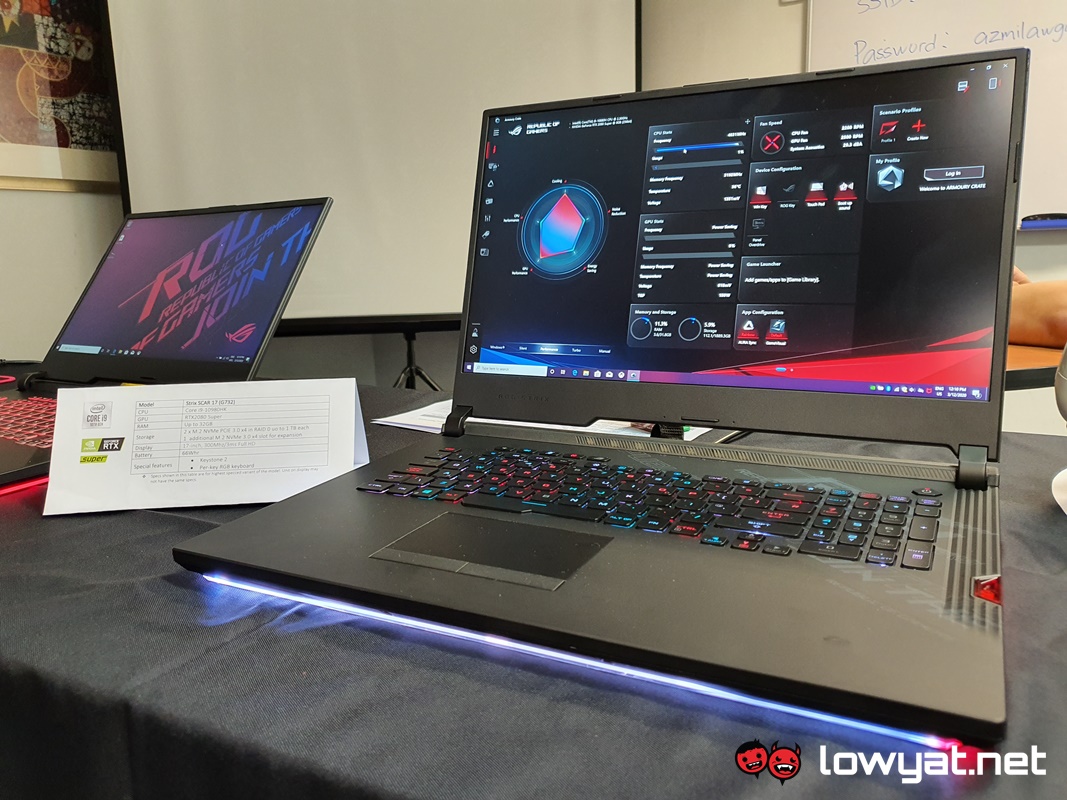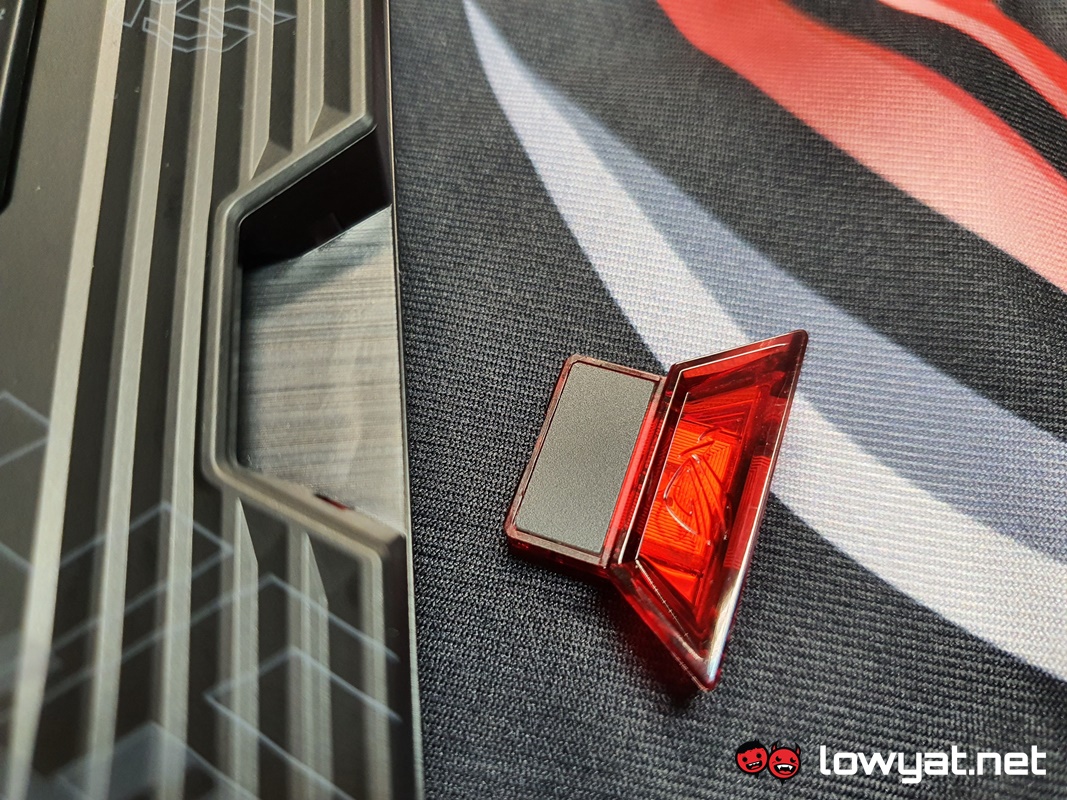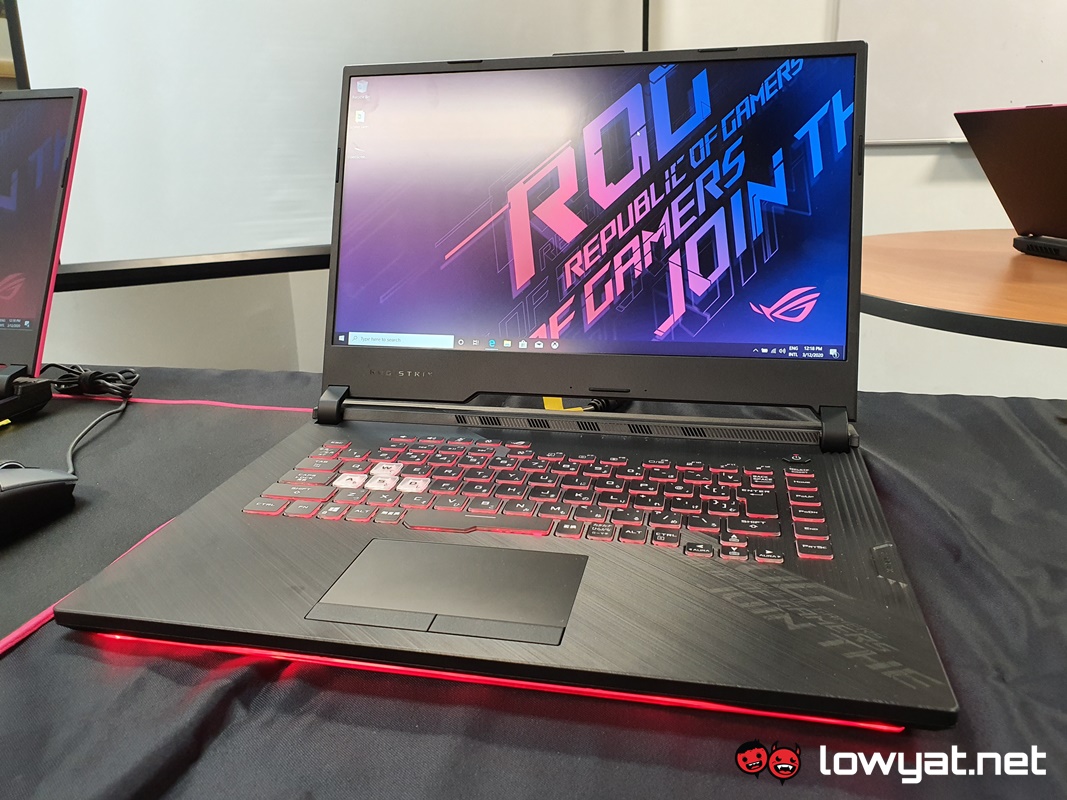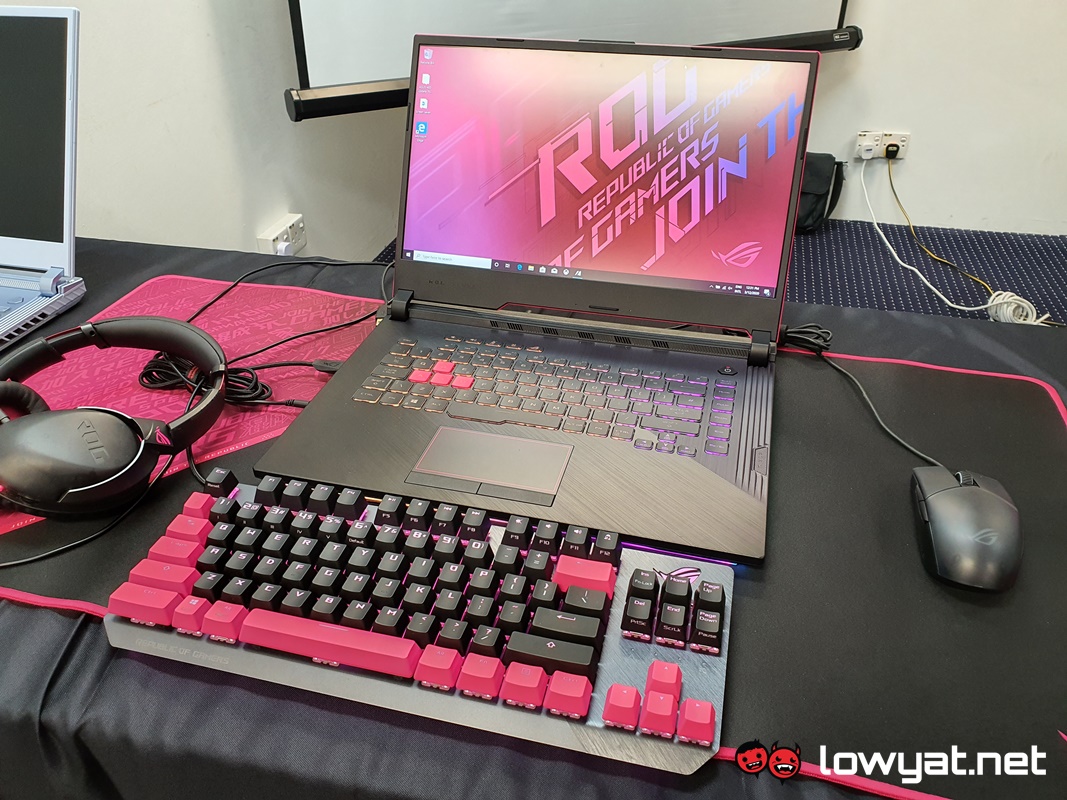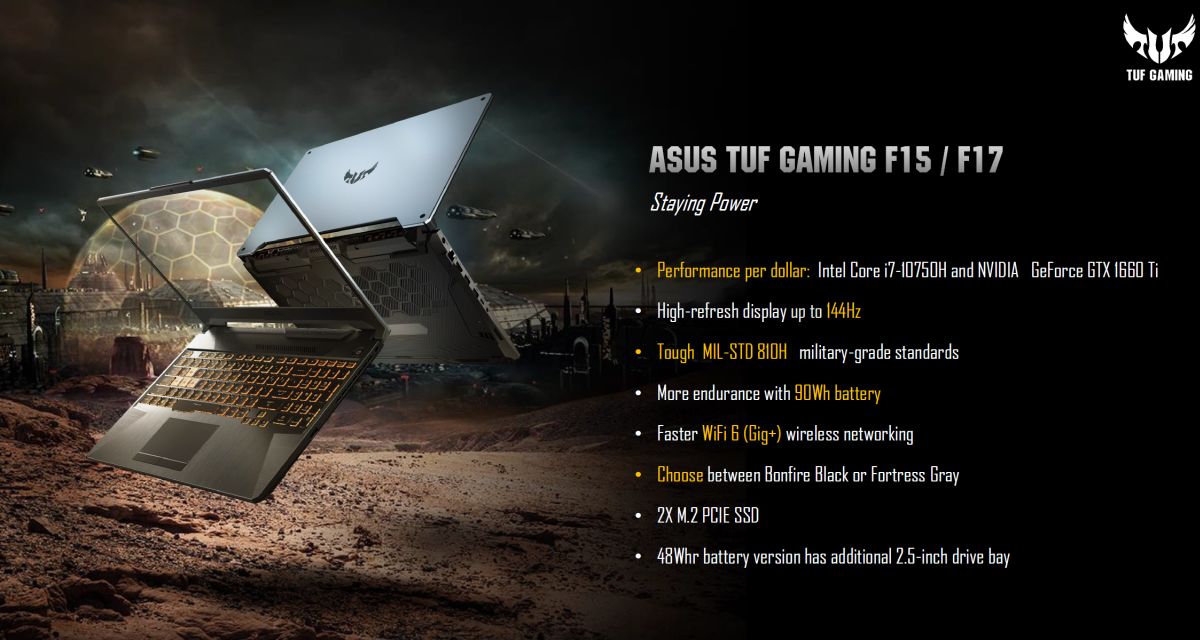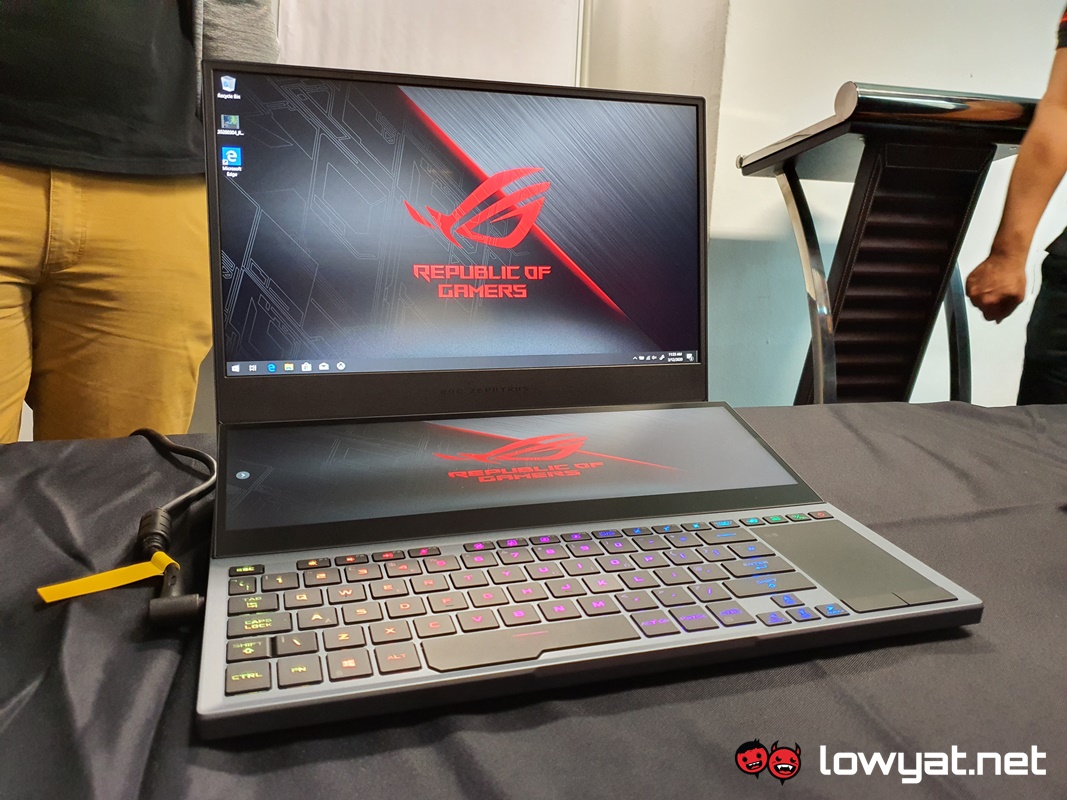Breaking it down, the entire ROG lineup consists of the Zephyrus S17, Zephyrus S15, Zephyrus M15, Strix G15 and G17, and Strix SCAR 15 and 17. As a general rule of thumb, ASUS says all its notebooks will run on up to 32GB of DDR4-3200MHz RAM. Storage-wise, all notebooks will naturally be running on NVMe PCIe M.2 storage modules, but only select models will have a total of three NVMe SSDs installed, with two of those modules running in a RAID 0 configuration. As for cooling, ASUS says that it has adopted liquid metal cooling on both the CPU and GPU of its refreshed Zephyrus lineup.
Starting off with the Zephyrus S17, the gaming notebook is the upscaled successor to the original Zephyrus S that made its debut back at CES 2019. Technically speaking, this refreshed model will run on an 8-cores, 16-threads Core i7-10875H and up to an NVIDIA GeForce RTX 2080 Super GPU beneath a hood. In addition, its 17.3-inch Full HD display has a refresh rate of 300Hz, a response time of 3ms, as well as G-SYNC installed. As for the Zephyrus S15, the notebook has more or less identical hardware as its big brother. The differences between the two obviously being that its display is smaller at 15.6-inch and its RAID 0 NVMe SSD configuration. That said, we’re still looking at a gaming laptop with a 300Hz refresh rate display, with G-SYNC to boot. Moving down the line, the story’s more or less the same with Zephyrus M15 as well. It ships out with the same 10th generation Core i7-10875H, but instead of an RTX 2080 Super, the notebook tops out with an RTX 2070 Super. On an aesthetic note, the Zephyrus M15 does look good with its magnesium alloy chassis, and that adds to its allure. Should you decided to be the proud owner of this model, however, you’ll have to choose between a 15.6-inch Full HD panel with a 240Hz refresh rate and 3ms response time or a 4K Adobe RGB display running at 60Hz. Regardless of your choice, both options offer a Pantone Validated display.
Outside of the Zephyrus lineup, the ROG Strix SCAR 15 and SCAR 17 also share nearly identical hardware; surprisingly, both models are fitted with a beefier Core i9-10980HK CPU. While the allotted GPU tops out with an RTX 2070 Super. If you’ll pardon the pun, the key difference between the two is that the SCAR 17 is the only model that comes with ASUS’ ROG Keystone II NFC-style Shadow Drive.
Moreover, the displays on both the SCAR 15 and SCAR 17 have a 300Hz refresh rate and 3ms response time. Perhaps one of the more interesting ROG laptop refreshes to be announced is the Strix G15, but not for the reasons you think. On paper, the notebook comes fitted with an Intel Core i7-10875H, up to 32GB DDR4 RAM, a three M.2 NVMe SSDs with two modules running in a RAID 0 configuration. It’s also got an RTX 2070 Super, with a 15.6-inch Full HD display running at 240Hz supporting it.
What makes the Strix G15 stand out is one of its colour options: in a sea of metallic grey and black, ASUS saw fit to create a colour variant called Electro Punk Pink, and believe us, it really makes the machine stand out. Then, the brand takes it to another level by installing what it calls a wrap-around light bar into the lining of its display and base. On a side note, there’s also a 17.3-inch variant of the Strix G, though ASUS didn’t have that particular model on display during the media preview. Like its SCAR counterparts, its hardware is virtually identical, with its only discerning factor being its display size.
At this point, it should also be mentioned that ASUS has also given its TUF Gaming notebook series the makeover treatment too. Like its predecessor, the notebook line still retains the same durable, military standard chassis, but more to the point, it’s also rocking an Intel Core i7-10750H and a GeForce GTX 1660 Ti as the baseline model. That said, we did ask ASUS if there was a variant with a more powerful GPU, to which they said yes. Specifically, there was a model that comes with an RTX 2060.
Last but not least, ASUS surprised us with the announcement of the ROG Zephyrus Duo 15. A gaming notebook that has clearly taken page from the ZenBook Pro Duo, given its dual display setup. Of course, seeing how it’s a Zephyrus, ASUS spared no expense in fitting it with the top-of-the-line hardware. Firstly, the main display can be either a Full HD 300Hz G-SYNC panel, or a 4K Adobe RGB 60HZ screen. Both Pantone Validated, naturally. Much like the ZenBook Pro Duo, the secondary display is touch capacitive and is also rated at 4K resolution. Beneath the hood, the machine is rocking an Intel Core i9-1980HK, and an RTX 2080 Super with ROG Boost. By default, it comes with 16GB of DDR4-3200MHz RAM, but like every other notebook in ASUS’ new range, it can be bumped up to 32GB. At the time of writing, ASUS did not specify local availability or pricing for all the notebooks.
